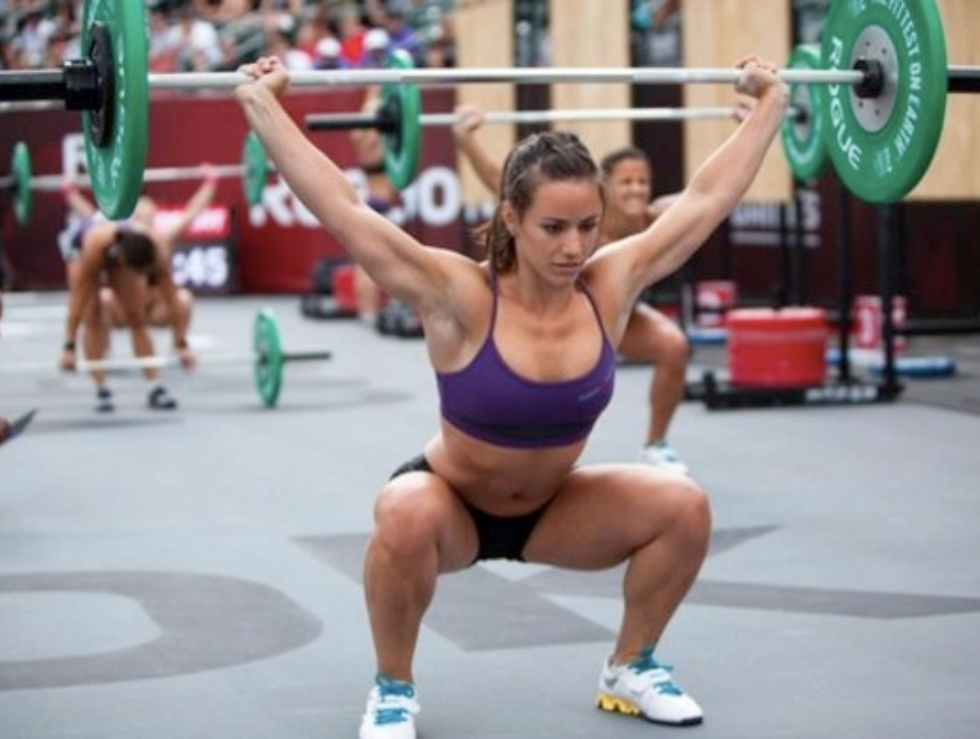Why Women Should Lift (5 myths, busted)
- Alex Ackerley

- Feb 16, 2018
- 3 min read
Since the beginning of my journey in the fitness industry, clients and friends have always asked me for gym advice; whether it’s to change the way their bodies look, increase their performance or just to lose weight. My advice would always involve resistance training and some method of lifting weights. For some reason, this can scare some women though. I know I’m not the only trainer to have encountered this resistance.
But the evidence is there, resistance training has many benefits and very few (if any) drawbacks. Here are the 5 most common myths or misconceptions I hear as to why Women shouldn’t lift weights and the truth behind each one.
"Spread the good word with your female friends, so that we can eradicate this misconception once and for all! "

Myth #1: Lifting weights make you ‘bulky’
This is by far the most common myth and the biggest fear for most women, however it couldn’t be further from the truth. For the people that don’t know, testosterone is a hormone found in both males and females and is known to be the primary driver in muscle growth. According to Goymann & Wingfield, 2014, here is the difference in levels between males and females.
Men’s Testosterone Range: 200-1200 ng/dl
Women’s Testosterone Range: 15-70 ng/dl
Men on average have 15 times more testosterone level than women.
Truth: Women have 15 times less testosterone than men, which makes it extremely difficult for them to get ‘bulky’.
Myth #2: My Goal is To Burn Fat, Not Get Stronger, So I Should Run, Not Lift Weights
A study that tested those who did weight training vs those who just did aerobic work (i.e. running at a steady pace on a treadmill) showed that the weight training group lost 21.1 lbs of fat vs 14.6 lbs for the group that did just aerobic work. That is 35% more fat lost for those who weight trained (Knuttgen, 2007).
The science:
Strength training results in more calories burned in the 16 to 24 hours (or even up to 38 hours according to some studies; Bouchard & Despres, 1995 and Young & Steinhard, 1995) after your training session ends. This is known as the afterburn effect.
Truth: Adding strength training to your gym routine burns significantly more fat than simply running on a treadmill for 45min.
Myth #3: Older Women Should Not Participate in Strength Training Exercises
By strength training larger muscle groups, older women will notice stronger bones, healthier joints, more independence later in life and decreased risk of insulin resistance and Diabetes.
Bone Density
“older women who did high-intensity weight training two days per week for a year were able to increase their bone density by one percent, while a control group of women who did not exercise had a bone density decrease of 1.8 to 2.5 percent.” – Prescription Alternatives, Professor Earl Mindell and Virginia Hopkins, 2009.
Healthier Joints:
“When people suffering from knee joint pain performed weight bearing exercises, they experienced a 43 percent reduction in pain after four months.” – Journal of Rheumatology, G. Peat, (2006)
Truth: Lifting weights safely with correct technique will give you stronger bones, and healthier joints, among many other benefits.
Myth #4: Lifting is Dangerous
From the Relative Safety of Weightlifting and Weight Training, the injury rates for weight training are significantly smaller than other sports. Here are a few statistics:
Weight Training: 0.0035
Basketball: 0.37
Soccer: 6.2
(Values shown are injuries per 100 hours participation)
Truth: Weight lifting is much safer than many mainstream sports such as basketball and soccer that we expose our kids to every day.
Myth #5: I tried strength training but I am not losing weight
If you only check your weight using scales, it is very hard to know what weight you are losing/gaining.
As you incorporate more strength training, you’ll burn fat, however you’ll also gain more muscle mass. Because muscle is more dense, it may seem like you’re not losing weight when you step on the scale even though fat is being burnt.
Truth: Measuring weight is very misleading. It’s much better to just pay attention to how your clothes fit and/or track your Body Fat %.
Troy is an integral member of the NexusFit Team. He leads Personal Training and Group Fitness. He's a knowledgable, well rounded Personal Trainer and Nutritionist and he flat out gets results. If you'd like to work with Troy, or any of the NexusFit team then contact us here.




Comments